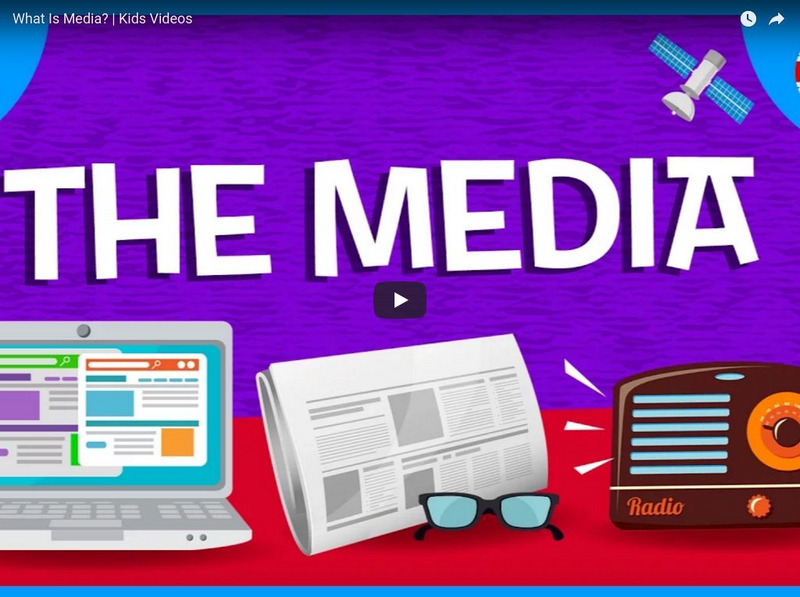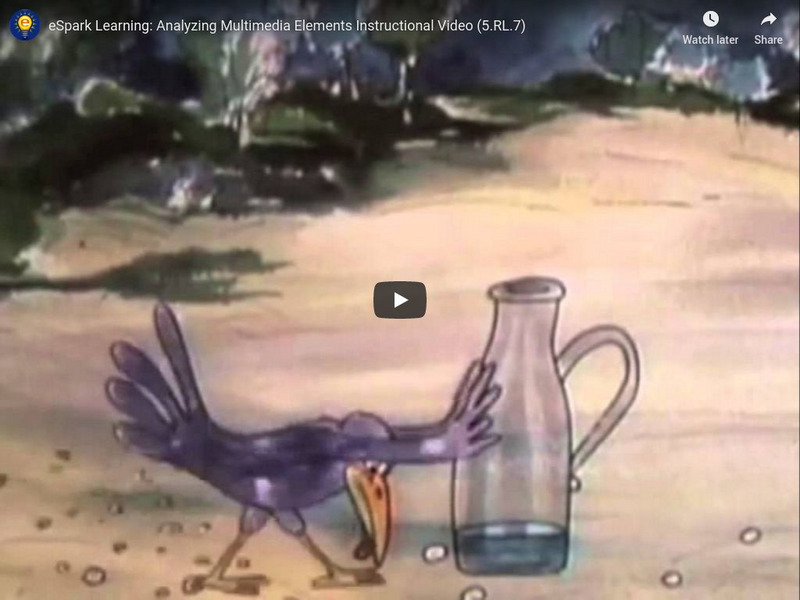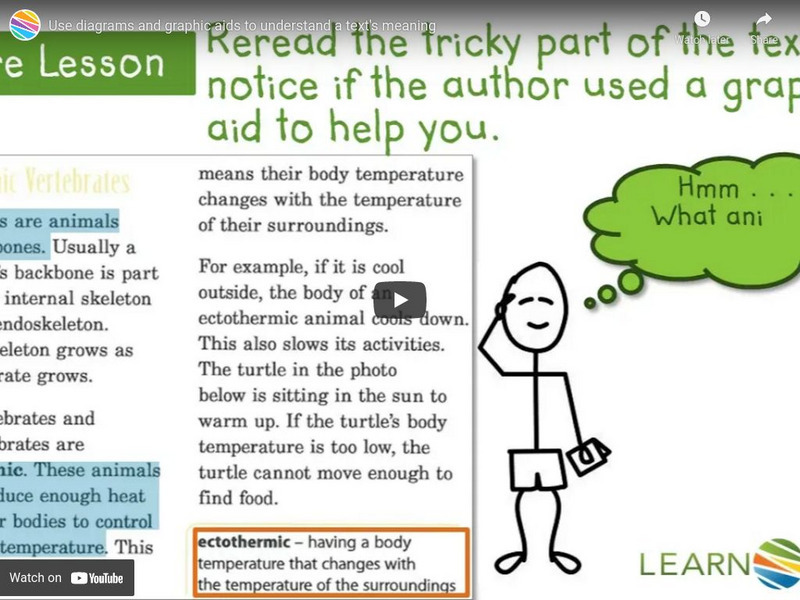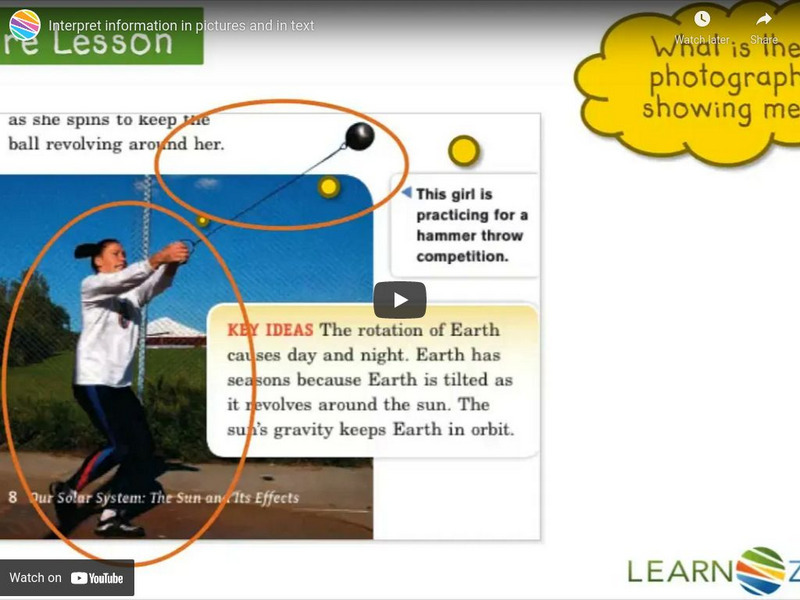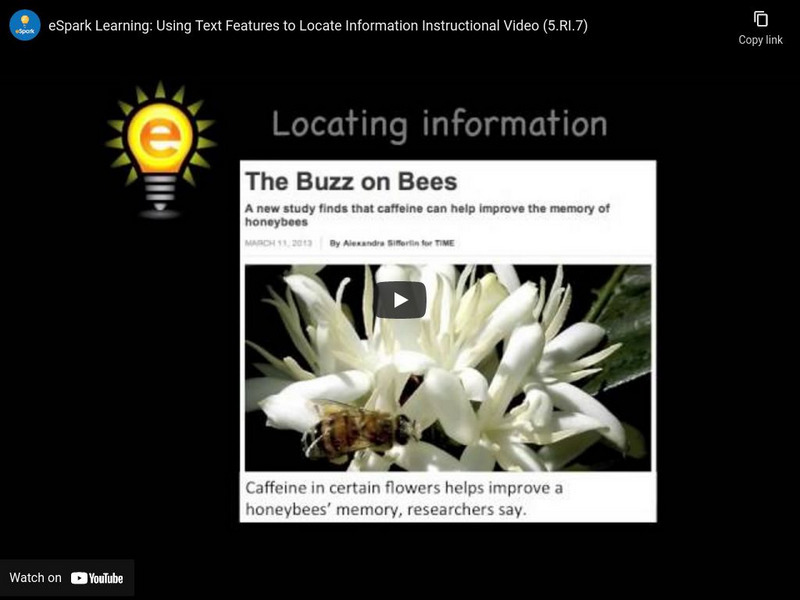SciShow Kids
Meet the 5 Dwarf Planets!
What's bigger than an asteroid but smaller than a planet? A dwarf planet! Take a peak into the five dwarf planets—Pluto, Haumea, Makemake, Eris, Ceres—with a captivating video hosted by Jenni and Squeaks.
SciShow Kids
What Are Stars?
What are stars and how do they work? Find out with a peppy video that examines hot balls of gas, the sun, and several constellations.
SciShow Kids
Why Can I See the Moon During the Day?
Ever wonder why the moon is visible during the day? Discover why with a captivating video that details the reason with the help from a lively host and engaging graphics.
SciShow Kids
Are Aliens Real?
Are aliens real? Find out with an engaging video that details the three ingredients—water, oxygen, and food—necessary for living things to survive.
SciShow Kids
Let's Make the Solar System
Get crafty with the help of pictures and a real-time demonstration from a video that details the step-by-step process in creating a paper solar system.
SciShow Kids
Explore Saturn's Rings
Be prepared to get an in-depth look into the sixth planet from the sun—Saturn—with a fast paced, eye-catching video that details the planet's famous rings.
SciShow Kids
Create Constellation Flash Cards #sciencegoals
Get the inside scoop on constellations from Jessi and Sam the Bat in a captivating video that also supports study skills using flashcards.
SciShow Kids
Why Does the Moon Change?
Find out why the moon changes with a captivating video that details the lunar cycle through engaging narration and graphics.
SciShow Kids
Make a Moon Puzzle! #sciencegoals
Craft a moon puzzle with the help of an energetic and captivating video. Listen and watch while the host demonstrates the step-by-step process and includes a plethora of useful information about the moon.
TED-Ed
Why is Mount Everest so Tall?
Many years ago, when the Indian plate collided into the Eurasian plate, the highest mountain on Earth was formed. But what gives Mount Everest its shape? Watch an informative video to learn what factors make the...
TED-Ed
Why Do Buildings Fall in Earthquakes?
There are few natural phenomena as startling as an earthquake, and depending on the building you're in, these experiences can be downright terrifying. Follow along as this video explores the factors that determine how a building...
TED-Ed
I'm Batman
When you think about bats, what comes to mind? Vampires? Rabies? After watching this short video you'll have a whole new appreciation for these terribly misunderstood mammals.
Andrews McMeel Publishing
POW! A Peanuts Collection
Make a study of Charles M. Scultz's famous comic strip Peanuts in your language arts class. Class members read and discuss the baseball-themed book POW! A Peanuts Collection. After talking about themes and vocabulary, they complete...
Ophea
Exploring Physical & Health Literacy
Help students discover the importance of physical fitness with this health literacy video. Beginning with a comparison of the choices made by two fictional teenagers, this resource continues on to explore the basic...
Ophea
Introduction to Physical & Health Literacy
Support children in living fun, active, and healthy lives with a video on physical and health literacy. Whether its learning basic skills like running, jumping, and throwing, or making healthy choices about the foods they eat,...
TED-Ed
The Nurdles’ Quest for Ocean Domination
Nurdles aren't the cute characters of a new children's cartoon, they are the tiny plastic pellets slowly polluting the world's water supply. Learn all about these little trouble makers with this short video that explores the impacts...
TED-Ed
Bringing a Pop-up Book to Life
Breath life into the pages of a text with this instructional video on creating pop-up books. From choosing a topic, through the planning and creation phases, this video examines how to develop engaging visual...
Other
Creators365: What Is Media? Kids Video (You Tube)
In this video, students learn about how people show their ideas or feelings through not just words or gestures but other ways of communicating.
Imagine Learning Classroom
Learn Zillion: Use Text Features to Understand and Interpret Biography
In this lesson, you will understand the elements of a biography by looking specifically at the text features within the article. [4:11]
eSpark Learning
E Spark Learning: Analyzing Multimedia Elements Instructional Video (5.Rl.7)
This eSpark Learning video aligns with Common Core Standard RL.5.7: Analyze how visual or multimedia elements contribute to the meaning, tone, or beauty of a text.
Imagine Learning Classroom
Learn Zillion: Use Diagrams and Graphic Aids to Understand a Text's Meaning
In this lesson, you will learn how to understand complex text by using information presented in a graphic aid. Login gives access to a slideshow and a student handout. [5:39]
Imagine Learning Classroom
Learn Zillion: Interpret Information in Pictures and in Text
In this lesson, you will learn how to explain an event by looking at the images and rereading the text. Login gives access to a slideshow and a student handout. [6:46]
PBS
Pbs Learning Media: Tips From the Playground: Chunking
Don't be scared of long words! Watch as Reggie uses chunking to break large words into smaller syllables. Reading these big words will be easy-peasy!
eSpark Learning
E Spark Learning: Using Text Features to Locate Information (Ri.5.7)
This video explains how to find the central idea and identify text features in print or digital nonfiction text. It uses several engaging articles as examples including one about a machine that splits Oreo cookies. [7:42]

















